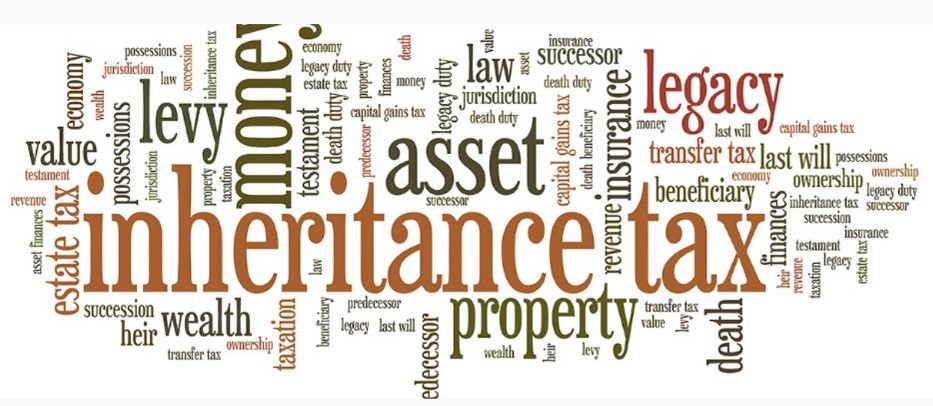Today's blog addresses a topic many people are eager to gain more insights on: INHERITANCE TAX. As a disclaimer, please be advised that the content of this blog is for informational purposes only and shall not be construed as tax, legal, insurance, or financial advice. If you need such advice, please contact a qualified CPA, attorney, insurance agent, or financial advisor.
At the top level, an inheritance tax is a levy imposed on the estate of a deceased person before it is passed on to their beneficiaries. The tax is based on the value of the assets left behind, including property, investments, businesses, and possessions, above a certain threshold. In many countries, inheritance tax can be a significant expense, potentially reducing the amount your loved ones receive.
You only pay inheritance tax if the value of your assets, belongings, property, and money (known collectively as your ‘gross estate’) exceeds a certain threshold when you pass away. Here in the UK, this threshold called the ‘nil-rate band’, is currently £325,000 and is scheduled to remain fixed at this amount until April 2028. Any amount above this is liable for inheritance tax. Different countries have different rules and exemptions regarding inheritance tax. It is therefore essential to understand the specific regulations in your jurisdiction.
Calculating the value of an estate and the related inheritance tax bill is complex because they depend on many factors. You would need to establish the total value of your estate, take into account any relevant exemptions, deductions and the nil rate band to establish how much of the estate is liable for inheritance tax, and account for future factors such as inflation, appreciating asset values and changing legislation. A financial planner or a specialist estate planning advisor can help you do this.
So, what can you do to reduce how much inheritance tax your loved ones have to pay when you’re not around? Thankfully, there are a few things you can do to prepare in advance and save your family from being landed with a hefty – and often unexpected – bill. Here are four things you can start doing today:
1. Make a will:
This is an extremely important step if you want to make sure your family isn’t faced with any more Inheritance Tax than necessary. Set up a will so that your assets are distributed the way you want them to. If you do not make a will, the government will decide how your assets are distributed (under the rules of intestacy). This is unlikely to be the most tax-efficient method.
2. Move your savings into your pension:
Maximize your contributions to pension schemes, as pension assets typically fall outside of your estate for inheritance tax purposes. So, if you’re looking for another way of reducing the size of your estate, consider putting any money you have in a savings account – such as an ISA, which can count as a taxable asset – into your pension instead. Here in the UK, you can put up to £60,000 into your pension fund each year (previously £40,000), so if you start early, you could tuck away a sizeable amount so that it won’t be liable for Inheritance Tax.
3. Gift your money:
Gifting is an effective way of reducing the value of your estate for inheritance tax. There are several forms of gifting, but the one I will focus on here is the “Potentially Exempt Transfers”. These are gifts made by an individual that may become exempt from inheritance tax if the person making the gift survives for seven years after making it. If the person dies within seven years, the gift may be subject to inheritance tax on a sliding scale known as “taper relief.” Giving away assets while you are alive requires careful financial planning. You need to work out how much you can afford to give away whilst still ensuring that you have enough to meet your own needs.
4. Spend your money:
If you’re looking at ways to avoid inheritance tax, then the chances are you have a fairly sizeable estate to pass on. While it’s understandable that you want to look after your children and grandchildren, you have worked hard to build up your assets, so you should enjoy your money and spend it on yourself. However, finding the right balance between spending today and ensuring you are secure tomorrow requires a careful degree of planning. Your overall goal should be to ensure that you reduce your inheritance tax liability, whilst ensuring you never run out of money. Having regular meetings with a financial advisor will help you get the right balance between enjoying today and being secure tomorrow.


About Nike
Oyenike Adetoye (aka Nike) is an impactful speaker, author, and personal finance expert. A Chartered Management Accountant by profession. Nike is the founder and CEO of LifTED Finance, a private financial firm that educates, coaches and supports people on their journey through financial fitness and wealth management.
